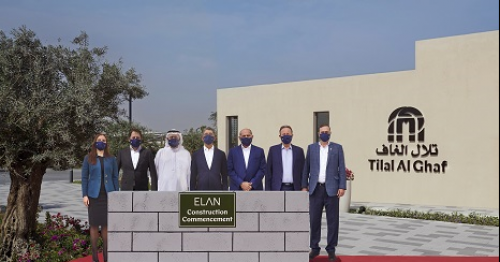Construction workers in Oman still at risk despite reforms
No respect
In Oman, there are over 2,100,249 expats currently (as of March 11, 2018), of which more than 1.8 million are employed by private or public firms. Expats from Bangladesh are still on top at 690,381 and is followed by Indians at 685,938.
While the numbers of labourers aren’t mentioned, it is safe to believe that the labour workforce largely comprises Asian expats, says Jamal al Balushi, an Omani national who has long been offering aid to expatriate labourers who work in his up and coming neighborhood in Al Khoud.
“Very little help is given to these poor labourers. Even their own fellow nationals don’t treat them with respect. I have seen a lot of people ignoring them and even walking right over them in places where these poor people rest.
“That is disrespect – and that attitude must change. We tend to forget that if these people don’t do their jobs, we are the ones that will be at a loss.
“What’s more saddening is that their bosses sometimes hold back payments. They forget that their employees who sweat blood literally to get the work done cannot eat or send back money to their families on time because of that.
“Once I had asked an Egyptian construction company owner who had taken up a project in my area why he hadn’t paid his staff. His reply was that the later he paid them, the more money they would have at the end of the month,” exclaims the 60-year-old, who is flabbergasted while narrating the incident.
“How much money can these guys save if their salaries are RO100?” he asks, as he shakes his head in disbelief.
A small light in an otherwise dark time for our friend Dineshan is his project manager (who wishes to remain unnamed) who has been providing him and a handful of others with food and covering their basic expenses. Albeit, it must be stated that even he remains unpaid till date.
12 hours of work a day
But the concerns raised by other labourers don’t just end with delayed payments. A great majority of labourers we spoke to highlighted concerns ranging from long working hours – with some alleging over 12 hours of work in a day, short breaks and no days off.
Zulfiqur Rahman, a Bangladeshi labourer currently working on a residential complex, complains about how the company forces them to work for eight hours on a stretch.
“We rarely get breaks,” says the labourer. “We don’t have rights and are treated like garbage. It’s getting hot here and we are tired by noon. All we have is time to eat our lunch and in 10 minutes we have to be back to the camp.
“By then our bodies ache. We’re currently in the process of laying the foundation and there’s no time for us to waste. But because we’re a small team, we have no option but to work long hours.
“We even work on our day off (Friday) and Saturday is already a working day for us,” he exclaims.

“We don’t know what to do and we don’t know who to talk to. We’re at the mercy of our project manager – who would make us work 24 hours if he could. He has no heart and respect for anybody,” he tells us, before rushing back to work, citing that he will fall in trouble if his boss finds out that he is talking to
the media.
Dangerous work sites
Walking around the construction site, which is blatantly open with no locks on the gates or warnings, we notice several violations with regards to the health and safety of the workers. Numerous workers are seen lying in the shade underneath a cement mixer and concrete mixer.
Also, those moving around the camp are seen to be bereft of hard helmets and boots.
The state of the workers lying on the floor with hard hats covering their faces to prevent direct exposure to the sun are distressing – and it prompted us to reach out to the project manager to ask if the labourers can be provided with a covered and air conditioned shelter for resting.
He immediately retaliated by asking us to leave the premises, while telling us that we were breaking the law by entering the camp. He then closed the gate shut.
To get to grips with what can be done in such scenarios wherein the labourers are deprived of basic facilities, we talked to a social worker of over 25 years in Oman, PM Jabir.
He says: “Some of these issues that you raise have been a concern over the last two decades of my existence here in Oman. But what I have found is that over time, the Ministry of Manpower has become the go-to organisation for such cases.
“It breaks my heart when I see the people suffering, but a lot of them need to know that there is a governing body (Ministry of Manpower)
that will take care of their requirements. Clean facilities with drinking water, proper sanitation and air conditioning are mandatory at all construction camps.”
Deportation fears
Another trepidation that has been haunting these migrant labourers is the chance of getting deported from Oman: The reason being the non-renewal of visas.
All our efforts to connect with labourers who were offering services without a valid visa was futile out of fear of the media, but a simple stroll across the Ruwi area will show you the strength and prevalence of the unlicensed labour community in Oman.
Just last week, news that the Ministry of Manpower had arrested and deported 138 expat workers and laborers in Al Buraimi governorate, broke waves. Late last year (August 2017), more than 99 labourers were deported from Oman for working illegally – and it’s only a matter of time before such stories hit the news again.
To all those afraid of approaching the legal authorities, PM Jabir urges that they take some step to avoid legal consequences.
“If someone cannot approach the Ministry of Manpower directly, then they can head to the mission department in their respective embassies. For instance, the Indian Embassy has a ‘Community Welfare Wing’ and the Bangladeshi Embassy has a ‘Labour Wing’ that will actively work with the Ministry of Manpower to sort out the issue.
“I’ve been doing my best to tell the people to approach these channels and avoid taking other steps (strike, continuing to work illegally, etc.).”
Ray of hope
But things will be taking a turn for the better, Shashwar tells Y. “We have proposed a new classification method that will bring things in line with the law.
“We at the Oman Society of Contractors have come up with a new classification system that will change the way the companies comply with the Omani laws. And one of the things we will focus on is the provision of workforce housing for the safety and well-being of
the labourers.
“We are in the final stages of this project – and we are developing the website now. The Ministry of Manpower will soon issue the decree and it will help us classify companies and manage hidden trade within this sector.
“The construction sector is divided into two segments: The medium-level companies and large-level companies.”
He discloses that most companies in the latter segment are compliant with Omani laws. These companies include those contracting with large government and private organisations.
“It is the smaller and medium-level companies – those that are involved in smaller projects like the construction of buildings and villas – that default the law. Most of the times, these companies are registered to an Omani and is run by an expat.
“So, what we see is an expat taking advantage of his expat workforce. And 99 per cent of the times we see a company breaking the law, it is with a company that belongs to this segment.
Despite that, Shashwar believes that the future is bright. “Our new classification system will make sure that steps are taken against companies that break the law. Our idea is simple: you must classify as a genuine company by following the basic parameters that is set by the
Ministry of Manpower.
“Else, they will inevitably be brought before the law.”
Share This Post





